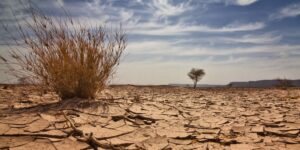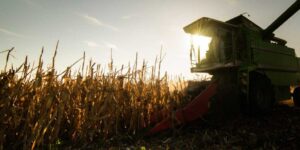“A sustainable agriculture is one which depletes neither the people nor the land.”
– Wendell Berry
What is sustainable agriculture? What is it that we hope to achieve by following sustainable practices in agriculture?
The fast depleting ecological system is predicting an alarming scenario for the survival of future generations.
Rampant wastage of natural resources and irresponsible use of pesticides are among the critical reasons for this decline. Additionally, skewed economic parity and unprofitability of the agricultural sector are adding to the gloomy picture.
This scenario spells spiralling implications for the majority of the Indian population and has led to an urgent need to take corrective measures.
Therefore, sustainable agricultural practices are critical, both for our present as well as our future.
In layman terms, that means meeting society’s need for good quality and healthy food and other agro-products. All this, without adversely impacting the ability of future generations to do the same.
The key is to find the right equilibrium between the production of food and the preservation of the ecosystem.
Additionally, it helps farmers, the most crucial player in agriculture, achieve economic stability and improve their quality of life.
Sustainable agricultural practices work towards achieving a thriving ecosystem, productive economy and socio-economic parity.
Each player in this value chain, right from farmers, farming experts, waste management experts, food processing companies, distributors, retailers and consumers can add value and do their bit in building a viable future for all.
The need for sustainable farming practices becomes even more significant in a country like India, where agriculture is the biggest employer.
Around 58% of the Indian population is dependent on agriculture for its livelihood.
So how do sustainable agricultural practices help the current and future generations?
| It is predicted that by the year 2050, the world will need approximately 70% more food than is currently being produced to sustain the growing world population. |
Sustainable farming techniques revolve around optimally using natural resources while not harming the environment in any way.
5 Powerful & Positive Impacts of Sustainable Agriculture
Conserves Natural Resources & Promotes Healthier Ecosystems

Employing sustainable agricultural practices ensures that natural resources like water, electricity, air etc. are used most optimally. As a result, these will be available for our future generations as well.
A case in point being the use of efficient irrigation techniques like Sprinkle & Drip irrigation techniques used by companies like Jain Farm Fresh Limited. The utilisation of these evolved techniques has resulted in as much as a 60% reduction in water usage.
Sustainable agricultural practices promote healthy ecosystems, as everything and everybody flourishes in a balanced environment.
Reduces Pollution and Adverse Effects on the Land Resources
Sustainable farming techniques reduce the need for non-renewable energy resources.
| Agricultural activities contribute around 12% of the global greenhouse gas emissions, and industrial agriculture only adds to the damage. |
Sustainable farming techniques work towards adopting good agricultural practices so that there is minimum wastage of crop and resource.
The farmers are trained to use pesticides and fertilisers most optimally, which results in two positives. One, there are zero pesticide residues in the crop. Two, the land around the farms, which is made redundant by the overload of chemicals in the soil, can be salvaged.
Ensures Better Quality and Healthier Food
Crops grown using cutting edge and responsible farming techniques like Ultra-High Density Plantation (UHDP), optimal use of pesticides and fertilisers, are of high-quality.
This practice protects consumers from being exposed to toxins and other hazardous pollutants, thus ensuring many health benefits to them.
Promotes Social & Economic Growth
Sustainable and ethical farming practices like JAINGAP and Contract Farming, help in improving the economic and social status of the farmers.
Farmers work in humane and fair working conditions and receive a reasonable price for their produce.
As a result, they significantly reduce their dependence on subsidies and concessions to lead a quality life.
Helps in Reducing Farming Costs
The use of sustainable practices reduces the need for fossil fuels, chemicals, etc., and further the costs of transporting them.
All these lead to a significant reduction in the overall farming costs, which in turn mean, better quality products at lower prices.
Methods like crop rotation, crop diversity, using renewable resources all contribute to moving towards sustainable farming.
Also, innovative technologies like Ultra-High Density Plantation, tissue culture also add significant value.
Furthermore, cover crops, soil enrichment, natural pest control techniques, optimal use of pesticides, are also essential components of sustainable agriculture.
All these methods and techniques employ farming practices that harness nature and use its resources most optimally.
Here are some sustainable farming methods that make a difference
Soil Enrichment
Rich and fertile soils are integral to growing healthy crop and for increasing the crop yield as well.
The traditional techniques of farming often reduce the fertility of the soil by the overuse of pesticides.
Sustainable farming practices like leaving crop residue in the field post-harvest, using plant and animal compost as manure, are all critical.
Crop Rotation
Crop rotation is a powerful and highly effective method of moving towards adopting sustainable agriculture.
It helps eliminate the challenges that come with planting the same crop in the same soil for years together.
The chief is the elimination of pests that attack specific crops.
Crop rotation breaks down the population of the pests that thrive on a particular variety of crop.
Also, planting crops that replenish plant nutrients after harvesting one specific crop, leads to a decreased need for chemical fertilisers.
Cover Crops
As the name suggests, the cover crops are sown for the protection and enrichment of the soil.
Cover crops like clover, oats and rye protect the soil from erosion by wind and water.
They also suppress the growth of weeds, optimise the nitrogen levels in the soil and improve the overall quality of the land.
All this leads to a reduced need for fertilisers.
Natural Pest Hunters
Many birds and animals are natural predators of pests that plague and destroy the crops.
Sustainable farming ensures the habitation of these birds and animals on the farms, thereby keeping the number of pests in check.
As a result, it improves the production and quality of the crop grown dramatically.
Using pest predators is a highly effective technique in controlling the onslaught of the pests.
Consequently, it also helps in bringing down the need for insecticides.
All of the above and many more sustainable practices lead to a more profitable and viable future for all. In fact, this is the only way forward to ensure the ensuing generations even have a future.
We can all contribute by demanding products that have been grown or produced using sustainable practices. Let us all pledge to do our bit in nurturing nature.








